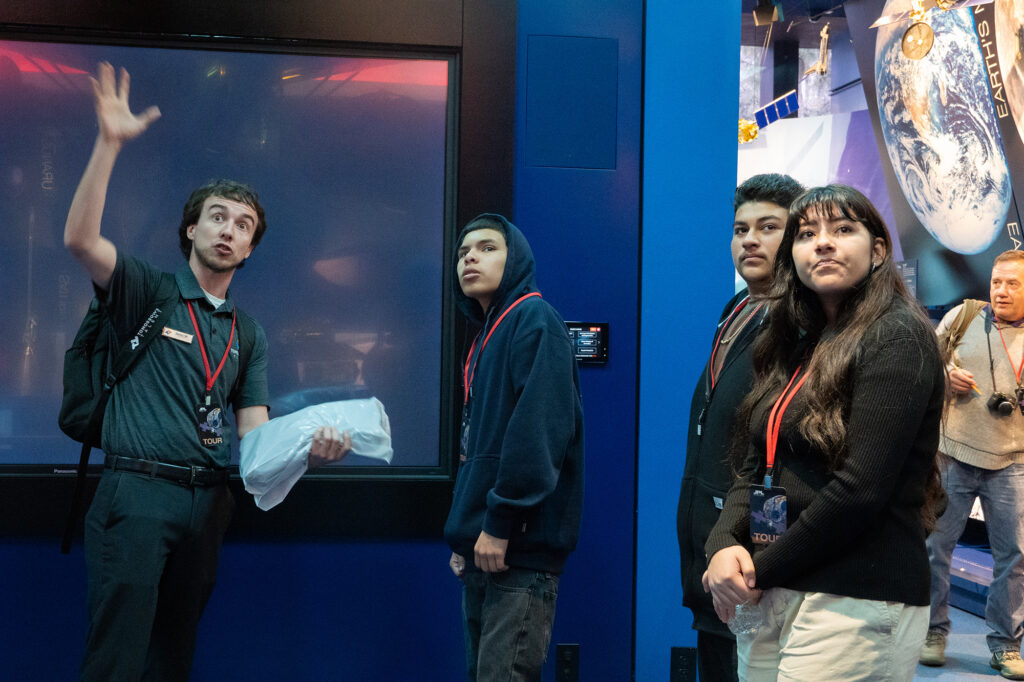In the dynamic landscape of today’s world, a clear alignment between educational outcomes and industry requirements is more critical than ever. While educational institutions work to prepare students for the workforce, there is an opportunity to enhance this alignment to ensure that graduates are equipped to thrive in their chosen careers. Employers are keen to attract talent that can seamlessly integrate into their operations from day one.
This is where intermediaries serve a key function, offering to enhance the synergy between educators and industry leaders. They are pivotal in fostering a partnership that ensures educational programs are closely tailored to evolving industry needs, thus seamlessly connecting education and employment.


Identifying Industry Needs:
Intermediaries act as the bridge between educational institutions and industries, enabling them to identify the evolving needs of the job market. By engaging with employers, these intermediaries gain insights into the skills, knowledge, and competencies in high demand. This information is then shared with educational institutions to align their curricula and programs with industry requirements, ensuring graduates have the right skills and knowledge.
Tailoring Education to Industry Demands:
With a clear understanding of industry needs, intermediaries can collaborate with educational institutions to design and deliver programs that are aligned with the demands of the job market. They can assist in developing specialized courses, updating curriculum content, and incorporating practical experiences such as internships, apprenticeships, or industry projects. This approach ensures that students gain hands-on experience and relevant skills, making them job-ready upon graduation.
Facilitating Industry Partnerships:
Intermediaries play a crucial role in facilitating partnerships between educational institutions and industries. By establishing strong connections, they create opportunities for collaboration, internships, and mentorship programs. These partnerships can lead to industry experts providing guest lectures, mentoring students, and even offering job placement opportunities. Such collaborations enhance the overall quality of education and provide students with valuable industry exposure.

Supporting Career Guidance and Placement:
Navigating the job market can be overwhelming for students and recent graduates. Intermediaries can bridge this gap by providing career guidance services, including counseling, job search assistance, resume building, and interview preparation. They can connect students with industry professionals and provide insights into career pathways, helping students make informed decisions about their future.
Facilitating Continuous Learning:
The relationship between education and industry shouldn’t end with graduation. Intermediaries can support lifelong learning by offering upskilling and reskilling programs. They can identify industry trends and skills gaps and collaborate with educational institutions to develop relevant courses. This continuous learning approach ensures that professionals remain adaptable and can stay ahead in their careers.
As the world becomes more interconnected and industries rapidly evolve, the gap between education and industry must be bridged effectively. Intermediaries are the missing link, facilitating collaboration and fostering mutual understanding between educational institutions and industries. By identifying industry needs, tailoring education, facilitating partnerships, and providing career support, intermediaries play a vital role in creating a workforce that meets the demands of the job market. Through their efforts, we can achieve a seamless transition from education to industry, ensuring the success and competitiveness of individuals and organizations alike.

Copyright © 2024 Tomorrow’s Talent, LLC. All rights reserved.
